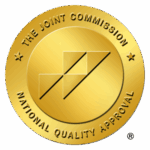
Welcome to Windward Way Recovery
We help men and women overcome addiction by providing community, connection, and purpose.
At Windward Way, we’re in the business of providing quality healthcare for anyone struggling with addiction. We achieve this goal by blending an innovative and totally unique approach to addiction treatment with the tried-and-true methods.
Windward Way has established a superior addiction treatment program for men and women unlike any other. We provide our clients with a sense of investment, ownership, planned structure, adventure, and empowerment to achieve the goal of long-term recovery for themselves. What’s more, our dual accreditation assures professionals they can feel confident referring their own clients to us.
Call us anytime day or night at (949) 991-4927
Review of Our Addiction Treatment
At our location in sunny southern California, Windward Way avails the men and women we treat with resources other rehabs only dream about. A point we’re quick to add is that it’s not just our setting that gives us the edge over other more generic programs. Honestly, our greatest resource is our top-notch and committed professional staff.
With our staff and clinicians as partners and professional guides for our clients, Windward Way sets itself apart from the rest by embracing the knowledge that every client entering our program is unique and deserves a customized plan for addiction treatment from the top down.
Call our intake experts now and let us design a plan for someone you care about: (949) 991-4927.
Alcohol Rehab
Windward Way provides the skills men and women need to keep a job and stay sober for the long haul—clients can discover the ways to overcome fear and live each day without a drink. Our alcohol rehab treatment stands apart from the rest through integrity, compassion, and structured care.

Backed By Data
Leading Completion Rehab Treatment Center
Windward Way Recovery is a unique, full-service facility that scores dramatically higher than the national average completion rates. Alumni leave Windward Way Recovery with equally high satisfaction rates based on their successful time and treatments.
Insurance & Accreditation
Put Your Trust In Windward Way Recovery
Windward Way Recovery accepts most types of private insurance and offers a variety of payment options.
Confidentially check your insurance provider for addiction treatment services benefits using our online form here.
- California Department of Healthcare Services
- The Joint Commission Gold Seal of Approval®
- Legit Script
- CARF Accreditation
- National Association of Addiction Treatment Providers
Licensed and Certified by the Department of Health Care Services
Program ID: 300394JP. Expiration Date: 6/30/2027
Program ID: 300394KP Expiration Date: 6/30/2027
Program ID: 300394LP Expiration Date: 6/30/2027
Program ID: 300394MP Expiration Date: 6/30/2027
Program ID: 300394NP Expiration Date: 6/30/2027
Program ID: 300394OP Expiration Date: 6/30/2027
Program ID: 300394PP Expiration Date: 6/30/2027

Frequently Asked Questions
-
What do I tell work?
You will need to request medical leave under the Family Medical Leave Act (FMLA). You do not need to let them know you are receiving treatment for substance use or mental health reasons.
-
How long is treatment?
Length of stay depends on your personal treatment needs and insurance coverage. You will have input into this decision with your clinical team, our goal is for you to receive the best possible treatment for your individual needs.
-
Do you allow cell phones?
Phones are allowed, please contact the treatment center for full details.
-
What should I pack?
We email a packing list to you, along with your welcome package.












